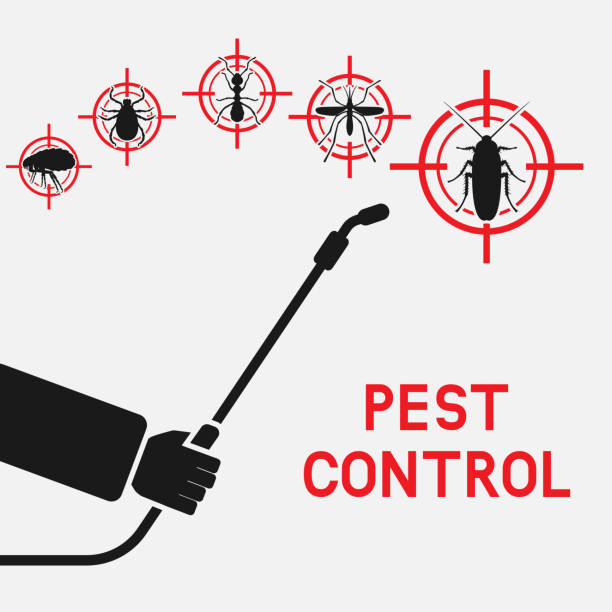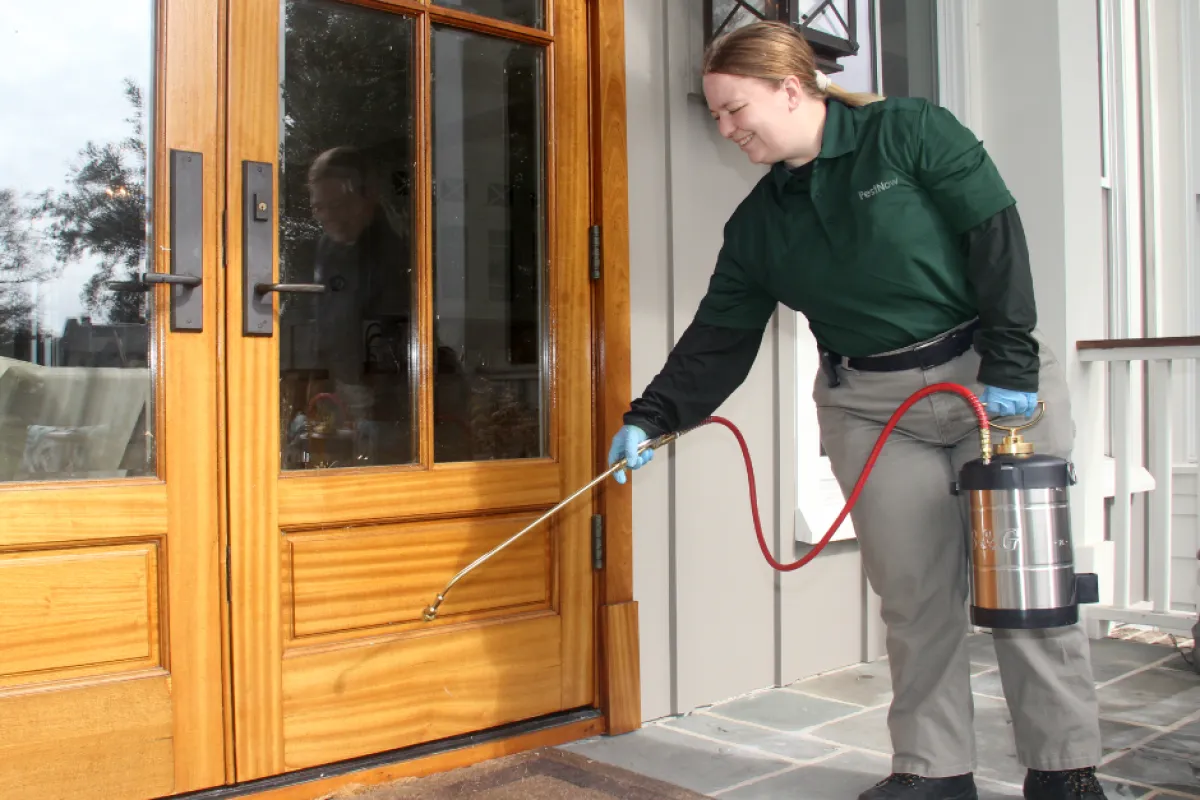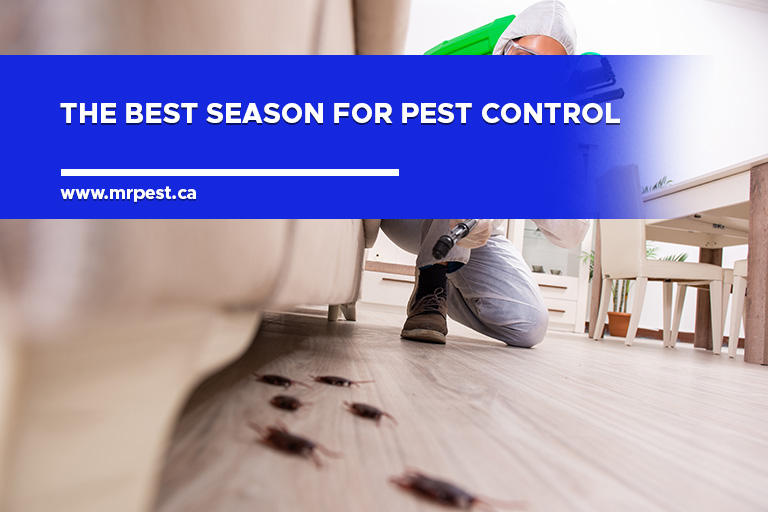Safe and Dependable Insect Control for Lasting Defense
Efficient pest administration requires a multifaceted approach that stabilizes environmental stability with the demand for effective bug suppression. The subtleties of these approaches may not be promptly clear, prompting a better evaluation of the techniques that can lead to lasting parasite control end results.
Understanding Insect Control Methods
Parasite control encompasses a selection of techniques targeted at managing and removing undesirable pests and rats that can endanger both wellness and home. Comprehending these techniques is important for reliable parasite management.
The key classifications of parasite control techniques consist of mechanical, organic, and chemical approaches. Mechanical approaches involve physical obstacles and catches to stop pest access and capture unwanted varieties. As an example, utilizing displays on windows or utilizing sticky traps can considerably minimize insect populaces without presenting harmful substances.

Chemical pest control is frequently the most identified method, making use of pesticides to eliminate insects. These chemicals can be efficient however should be made use of with caution to prevent negative impacts on non-target types and the atmosphere.
Advantages of Eco-Friendly Solutions
How can green solutions transform bug control methods? The fostering of environmentally friendly parasite control approaches offers various advantages, considerably improving the performance and safety of pest monitoring.

An additional benefit is the positive effect on local biodiversity. Eco-friendly solutions are made to target particular pests while maintaining valuable bugs and wild animals, promoting a well balanced environment. This strategy aligns with the growing customer demand for lasting techniques, boosting the track record of bug control companies.
Integrated Bug Management Methods
The application of environment-friendly solutions normally brings about the adoption of Integrated Insect Management (IPM) techniques, which even more boost parasite control efficiency. IPM is an alternative strategy that incorporates several strategies to take care of insect populaces while minimizing environmental impact. This strategy highlights using biological, cultural, mechanical, and chemical controls, making certain a lasting and well balanced technique of parasite monitoring.
One essential element of IPM is the extensive evaluation of insect task and environmental conditions. By keeping track of pest populaces and identifying their life process, professionals can apply targeted interventions that interrupt the pest's environment or lifecycle, reducing dependence on chemical pesticides. Additionally, social methods such as crop turning and habitat adjustment can dramatically diminish insect establishment and reproduction.
One more important component is the usage of organic control agents, such as valuable insects or microbes, which can normally suppress bug populations. When chemical applications are required, IPM prioritizes making use of low-risk chemicals and uses them selectively, reducing exposure to non-target microorganisms and human beings.
Including IPM strategies not only improves bug control efficiency yet also advertises a more secure ecosystem, lining up with the growing need for lasting methods in insect management.
Safe Practices for Property Owners
Understanding the significance of safe practices in bug control can encourage house owners to successfully manage parasite problems while safeguarding their health and the environment. Carrying out precautionary procedures and non-toxic approaches is crucial in reducing exposure to unsafe chemicals.
Home owners should initially examine their setting for natural pest control conditions that bring in pests, such as standing mess, water, and food waste. Regularly cleaning and securing entry points can discourage pests from invading the home. Using all-natural deterrents, such as necessary oils or diatomaceous planet, can provide reliable alternatives to chemical pesticides.
When chemical therapies are essential, property owners must select items that are particularly identified as risk-free for household use. It is necessary to adhere to application guidelines carefully to stay clear of too much exposure. Furthermore, making use of targeted treatments in areas where bugs are determined, rather than blanket spraying, can substantially minimize chemical use.
Last but not least, keeping open interaction with insect control professionals is essential. Homeowners must ask about the security of products utilized and request green choices whenever possible. By adopting these safe techniques, property owners can create a much healthier living atmosphere while successfully managing parasite issues.

Tips for Long-Term Protection
Developing a bug administration strategy that highlights long-lasting security can significantly enhance the effectiveness of the secure practices formerly reviewed. To accomplish this, homeowners should carry out routine inspections of their residential or commercial property, focusing on hidden areas such as attic rooms, cellars, and crawl rooms. Early discovery of bug task is important in stopping infestations from holding.
These methods lower attractants that draw pests into the home. Sealing entry factors, such as splits around doors and windows, can efficiently block potential bug access.
Landscape design must also be considered; maintaining plants trimmed and keeping a range in between plant life and the home lessens concealing places for insects. Making use of all-natural deterrents, such as essential oils or diatomaceous planet, can even more discourage infestations without resorting to extreme chemicals.
Last but not least, collaborating with a professional bug control solution for periodic evaluations can supply an extra layer of security. These specialists can provide customized suggestions and advanced therapies, guaranteeing that your home remains secured against pests in the long-term.
Conclusion
In final termite inspection thought, reliable and risk-free parasite control needs a diverse strategy that emphasizes environmentally friendly read this article techniques and incorporated parasite monitoring. By implementing all-natural deterrents, carrying out normal evaluations, and preserving proper sanitation, building proprietors can dramatically reduce insect populations while safeguarding valuable bugs and the setting. Collaboration with specialist bug control services boosts the performance of these approaches, ensuring customized options that offer long-term security and peace of mind against future infestations.
Reliable parasite management requires a diverse strategy that stabilizes eco-friendly integrity with the need for efficient parasite suppression. The fostering of environment-friendly bug control approaches uses various benefits, significantly boosting the efficiency and safety and security of bug administration.The execution of environment-friendly options normally leads to the fostering of Integrated Parasite Monitoring (IPM) techniques, which further improve pest control efficacy. exterminator coquitlam. By checking pest populations and recognizing their life cycles, experts can carry out targeted treatments that interrupt the pest's environment or lifecycle, minimizing reliance on chemical pesticides.In conclusion, secure and dependable pest control requires a diverse strategy that stresses eco-friendly approaches and integrated bug administration